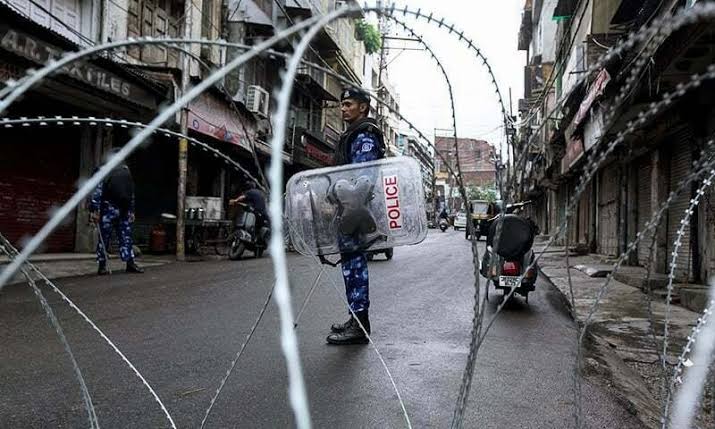In the run up to 18th G20 Summit to be held on September 2023, India is holding numerous meetings and events hosting G20 dignitaries. But whilst India wears the crown of the group’s rotational presidency this year, many human rights defenders frown at the credibility of two of the most pressing agendas of G20, namely “inclusive growth” and “women empowerment for socio-economic progress”.
G20 is revered by states as a platform that represents 2/3 of the global population, 75% of Global trade and 85% of the Global GDP. And hence, as a state that is involved in systematic violence and persecution of its minorities and women for decades, India’s presidency is a heinous hallmark on G20’s agenda and its credibility.
While India abstained in February’s UNGA vote to condemn Russia’s invasion of Ukraine, its permanent representative to UN Ruchira Kamboj manifested “…no solution can ever arrive at the cost of human lives.” The credibility of India’s intentions here are not verified in its abstention but also in its disrupted social fabric and systematic prejudice in the pursuit of its Hindutva ideology, that affects not only the state but the entire South Asian region for its part.
India’s human rights record has come under scrutiny during the 4th cycle of Universal Periodic Review (UPR) IN THE Human Rights Council in Geneva and witnessed by many other national and international organizations as well, including two reports published by OHCHR in 2018 and 2019. While giving credibility to the investigation by Jammu & Kashmir Coalition of Civil Society (JKCCS), UHCHR stipulated as to how about 1081 civilians lost their lives to the extrajudicial killings between 2008-2018 while some 1253 people have been blind by security force’s metal pellet shot guns between 2016-2018, reports Srinagar’s Shri Maharaja Hari Singh Hospital that takes most of the pellet gun related injuries.
Quill FOUNDATION in India adheres to such reports in its endorsing that Muslims faced the most serious violations out of all minority groups. In the run-up to the illegal revocation of the status of IIOJK on August 5, 2019, Legal Forum for Kashmiris in its Annual Human Rights Report stipulated 312 civilian killings in 200 major Cordon-and-Search Operations (CASOs) alone, whereas India is also indulged into colonial style settlement in 20 districts of Kashmir. 24 illegal settlements have been materialized and 350 others are under consideration. Genocide Watch had already issued a Genocide Alert warning for the region warning of “ethnic, religious and racial cleansing”.
Not only Muslims but other religious/ethnic minorities have also become victim to India’s Hindutva regime’s persecution and systemic prejudice. UN Special Rapporteur on Water and Sanitation reports Dalits as being victims of gravest forms of caste-based discrimination. Asia Forum for Human Rights and Development also endorsed rampant misuse of Counter-Terrorism legislation to persecute human rights defenders, journalists and personnel critical to the RSS-led Hindutva government. The death of a jailed 84-year old tribal rights activist Stan Swammy in July 2021, is emblematic to such ongoing persecution. Swammy was among 16 other human rights defenders arrested for politically motivated terrorism charges. “The government is providing political patronage and cover for bigotry”, says Meenakshi Ganguly, South Asia director at USA-based Human Rights watch.
So it is imperative upon India to bring its own house in order while making any such high profile proclamations or in its bid to become voice of the developing or let alone South Asian nations, the posture that India tends to take in its presidency. No such national or regional consensus can be knitted in attempts like Citizenship Amendment Act (CAA) or others of the sort. CAA disenfranchise Muslims living in India by stripping them of their citizenship, and hence affecting Muslims of Afghanistan and Bangladesh as well. India, in this case scenario must be better assured that the only way to become voice of developing, let alone South Asian states is by the state structurally conforming to International laws and standards.
India needs to find practical national solutions for the betterment of its own people and women, first and foremost. In instances whereby 11,000 women are reported to have been raped in IIOJK or where a hijab ban is imposed in Karnataka in contradiction to freedom of expression or whereby state political parties openly ensure Hindu men of ‘employment and security’ for luring Muslim women, the G20’s agenda like that of women empowerment and financial inclusivity seem to be a far if not foul play.
Hence, in order to sustain credibility and reverence the International Community attaches to G20 and its notion of Global Prosperity, the organization must bring to regard the systematic violations and prejudice of its President state, first and foremost, so that the world and the deprived people elsewhere are better assured that G20 and institutions of the like are such elements of Internationalism that conform to multilateralism and ‘benefit for all’ , in spirits and not just letters.






